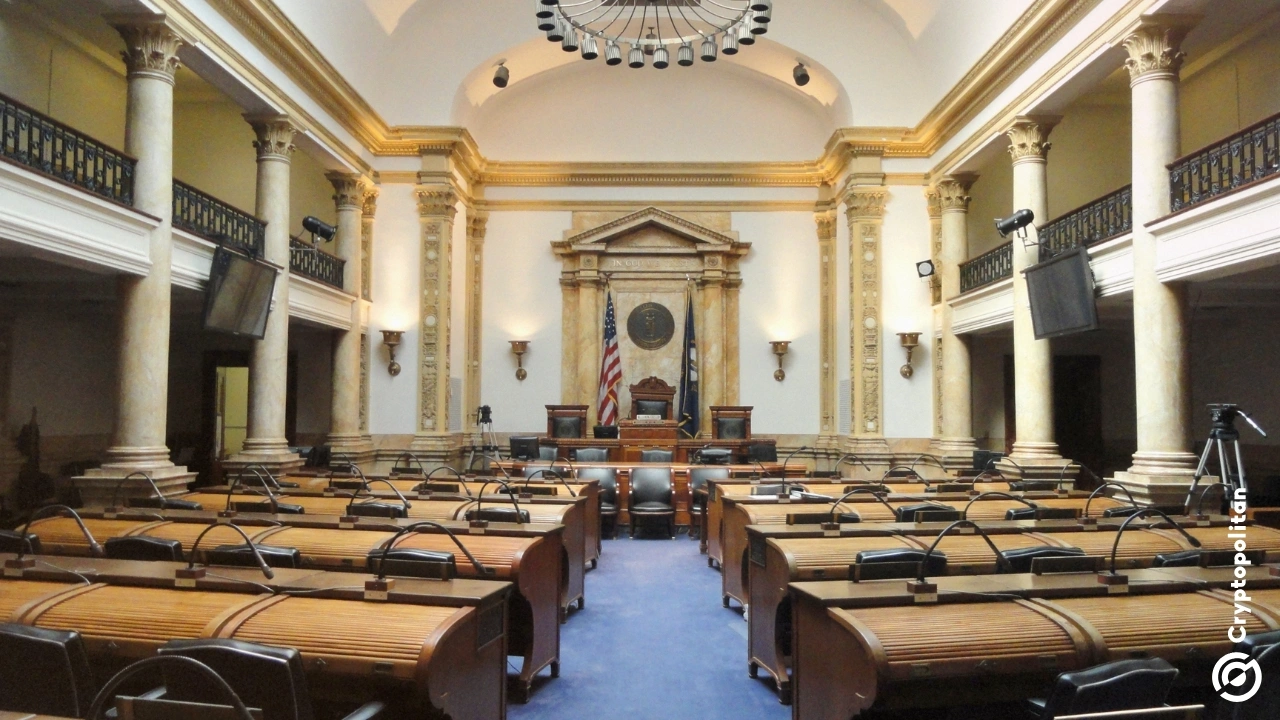A draft bill in the US Senate proposes imposing fees on data centers supporting blockchain networks and AI models that surpass federal emissions targets.
The bill, spearheaded by Senate Democrats Sheldon Whitehouse and John Fetterman, is designed to tackle the environmental effects of increasing energy demand while shielding households from higher energy costs, according to Bloomberg.
Key provisions of the Clean Cloud Act and industry reactions
Named the Clean Cloud Act, the proposed legislation requires the Environmental Protection Agency (EPA) to establish an emissions performance standard for data centers and crypto mining facilities with more than 100 KW of installed IT nameplate power.
The standard would be determined by regional grid emissions intensities, aiming for an 11% annual reduction in emissions. The bill also introduces penalties for surpassing the established limits, starting at $20 per ton of CO2e, with the fine increasing annually by inflation plus an additional $10.
“Surging power demand from crypto miners and data centers is outpacing the growth of carbon-free electricity,” notes a minority blog post on the US Senate Committee on Environment and Public Works website. According to the post data centers, electricity usage will account for up to 12% of the US total power demand by 2028.
The rapid growth of data centers is projected to generate approximately 2.5 billion metric tons of CO2 emissions globally by the end of the decade, according to research from Morgan Stanley.
Matthew Sigel, VanEck’s head of research, argues that the proposed legislation targets Bitcoin miners and similar operations for their energy consumption in a “Losing ‘Blame the Server Racks’ Strategy,” as he stated in an April 11 post on X.
Moreover, the law may conflict with US policy under President Donald Trump, who reversed a 2023 executive order from former President Joe Biden that set AI safety standards. Trump has also expressed his goal of making the US the “world capital” of both AI and cryptocurrency.
Bitcoin miners pivot to AI data-center hosting
The draft law comes as Bitcoin miners, including Galaxy, CoreScientific, and Terawulf, increasingly pivot toward supplying high-performance computing (HPC) power for AI models, VanEck said. Still, it has yet to be passed in the Senate.
Bitcoin miners have struggled in 2025 as declining cryptocurrency prices weigh on business models already impacted by the Bitcoin network’s most recent halving.
According to Coin Metrics, miners are “diversifying into AI data-center hosting as a way to expand revenue and repurpose existing infrastructure for high-performance computing.”
According to Coin Metrics, miners’ incomes began to stabilize in the first quarter of 2025. However, the recovery could be cut short if ongoing trade wars disrupt miners’ business models.
Nicholas Roberts-Huntley, CEO of Concrete & Glow Finance, noted that aggressive tariffs and retaliatory trade policies could create obstacles for node operators, validators, and other core participants in blockchain networks.
He continued to say that the infrastructure supporting crypto, not just the assets, can become collateral damage in times of global uncertainty.
Cryptopolitan Academy: Want to grow your money in 2025? Learn how to do it with DeFi in our upcoming webclass. Save Your Spot
This articles is written by : Nermeen Nabil Khear Abdelmalak
All rights reserved to : USAGOLDMIES . www.usagoldmines.com
You can Enjoy surfing our website categories and read more content in many fields you may like .
Why USAGoldMines ?
USAGoldMines is a comprehensive website offering the latest in financial, crypto, and technical news. With specialized sections for each category, it provides readers with up-to-date market insights, investment trends, and technological advancements, making it a valuable resource for investors and enthusiasts in the fast-paced financial world.
